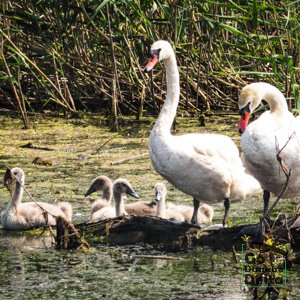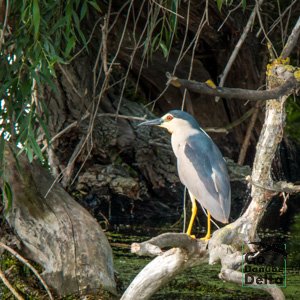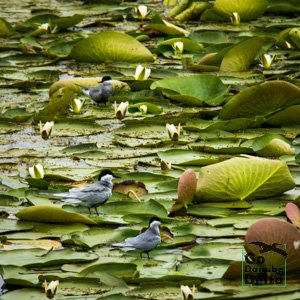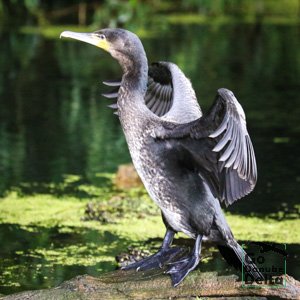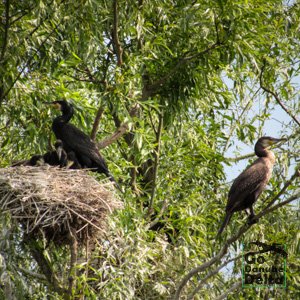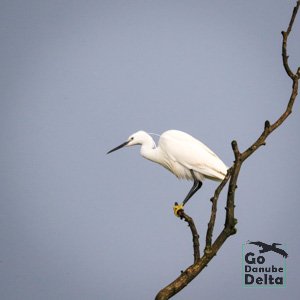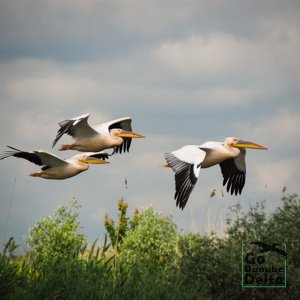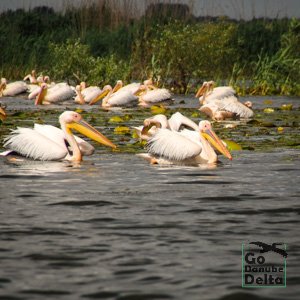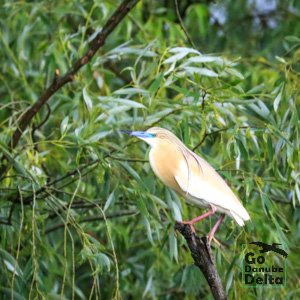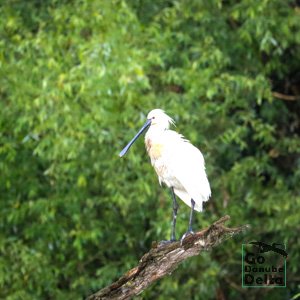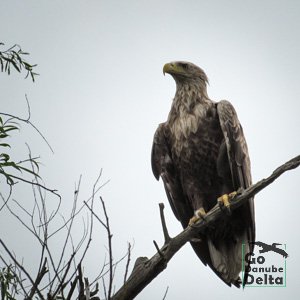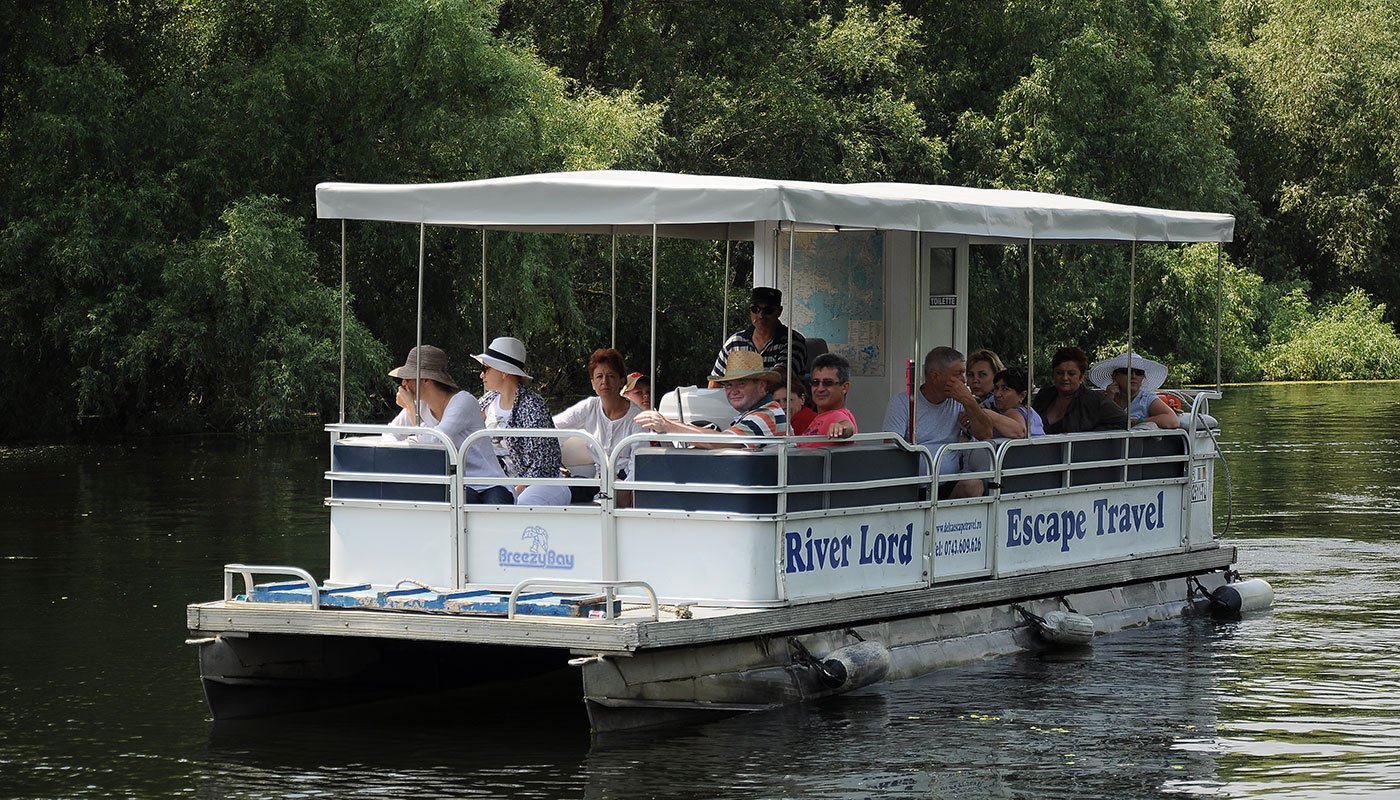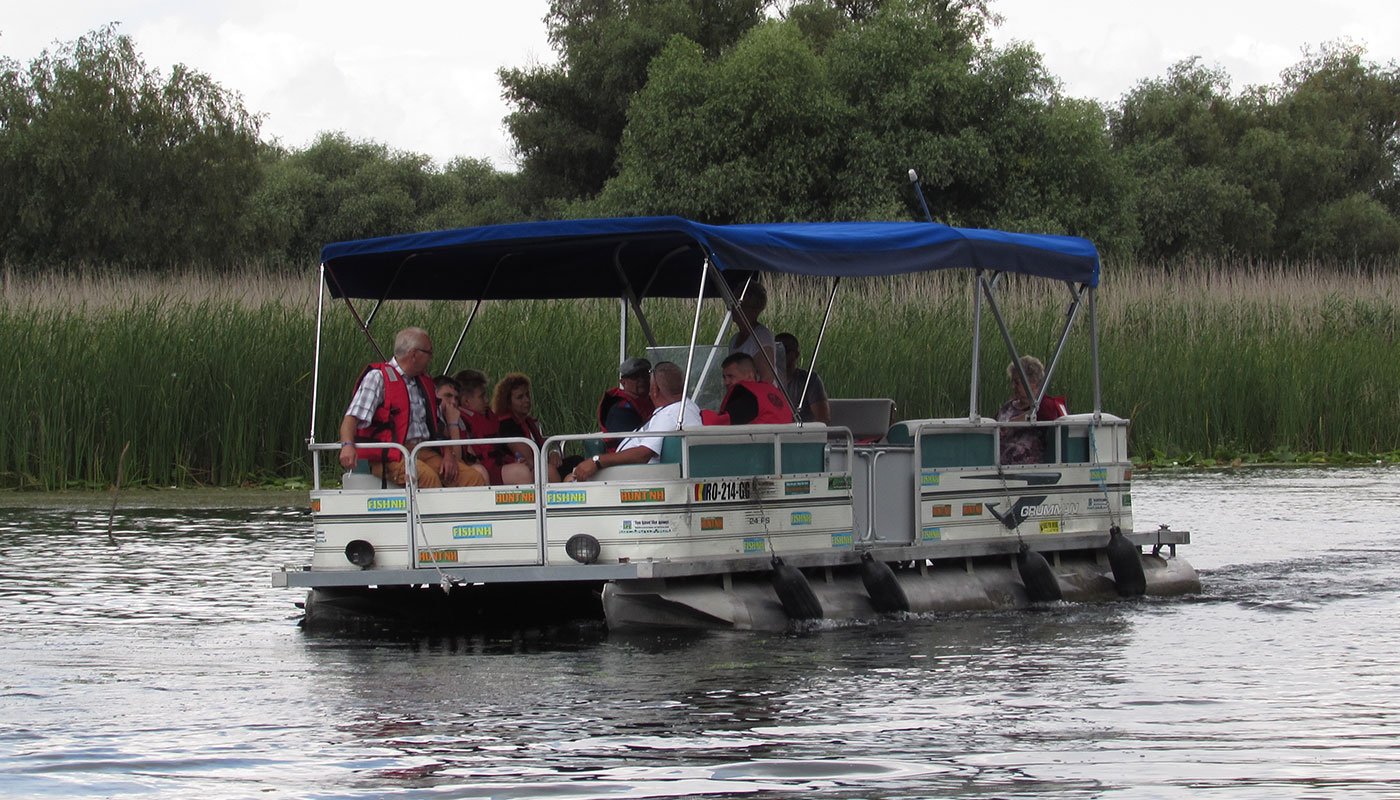Four days tour in the Danube Delta - Slow boats - 2026
Note:: We recommend the reservations to be made at least 15 days before the date of departure.
NEW! For Day 3, we offer you two excursion options to choose from!
Option 1 – Visit the town of Sulina
Option 2 – Excursion on Channels and Lakes Between the Sulina and Sfantu Gheorghe Branches
Considered to be the last wilderness of Europe, the Danube Delta Biosphere Reserve is a paradise of nature, which preserves a significant variety of fish and bird species. Delta is an extraordinary mix of cultures, fishing villages and ancient traditions. It is a favorite holiday destination in Romania. We offer you a special way to explore this area, namely a cruise in the Danube Delta by catamaran. For 4 days we will sail, most of the time, on narrow canals and lakes and we will see the attractions of the area. The catamaran has a maximum capacity of 12 seats but for your comfort, we recommend groups of 6 - max.8 people. It offers 360 degree visibility, ensures a smooth and comfortable transport and is equipped with a toilet unlike many other boats. A catamaran boat is the perfect way to discover this area with all its beauties. This boat can sail on narrow canals without noise and we will be able to get closer to birds or other animals. The beauty of the Delta consists in the labyrinth of small canals, islets, lakes, quieter and less visited areas. The catamaran ride is much more comfortable, you have a place to get up, change position, take a photo or have a drink. It will be a real expedition in the Delta, an unforgettable experience and memory.
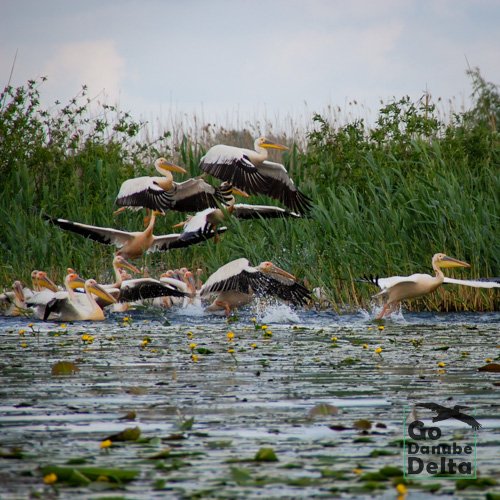
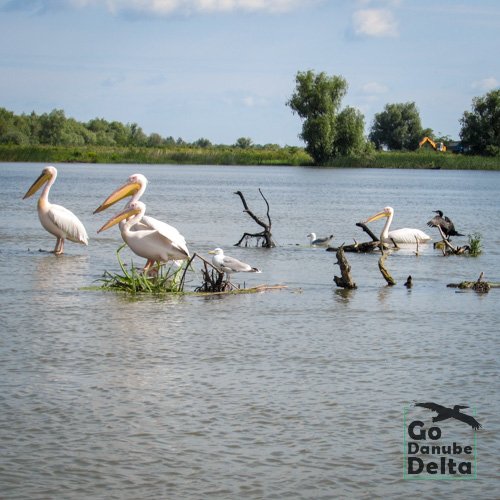
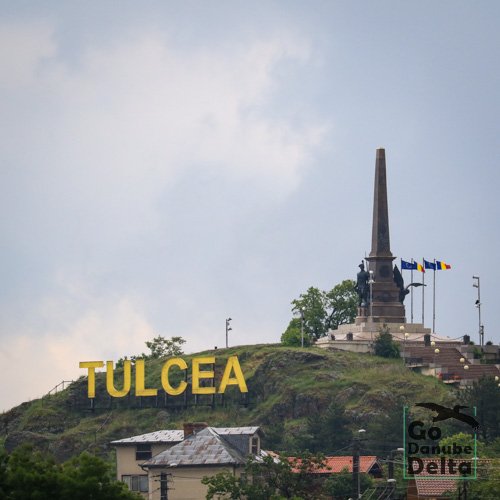
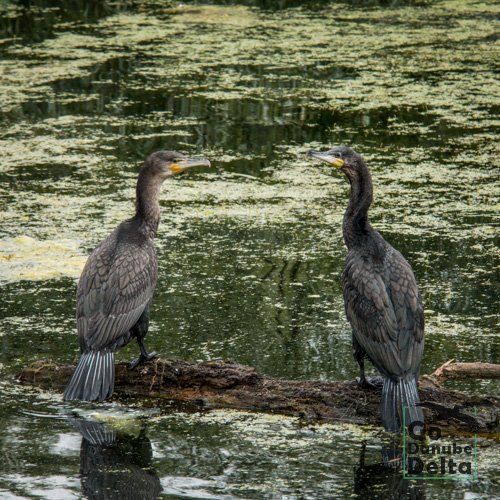
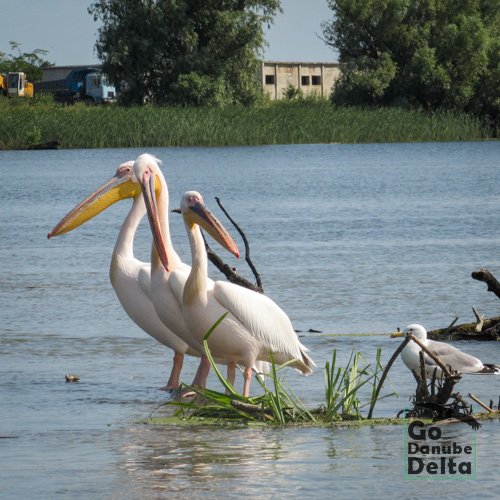
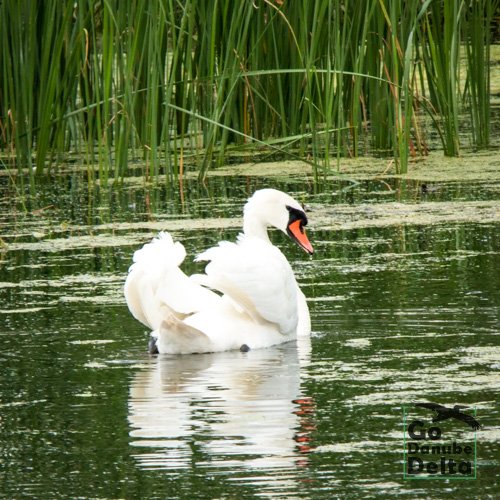
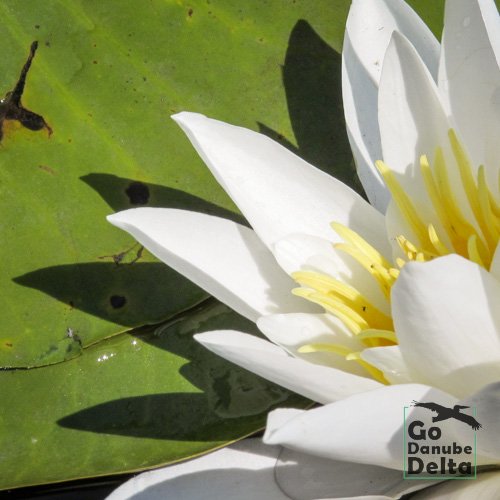

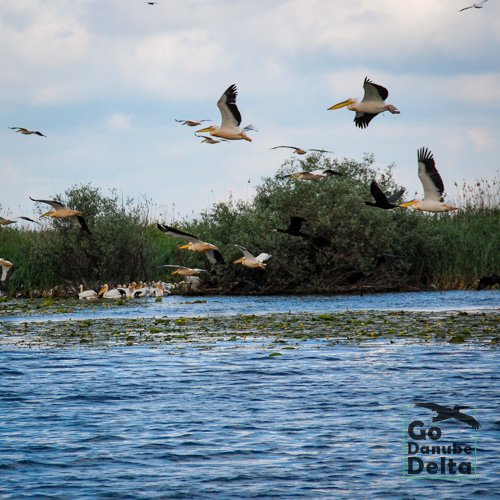
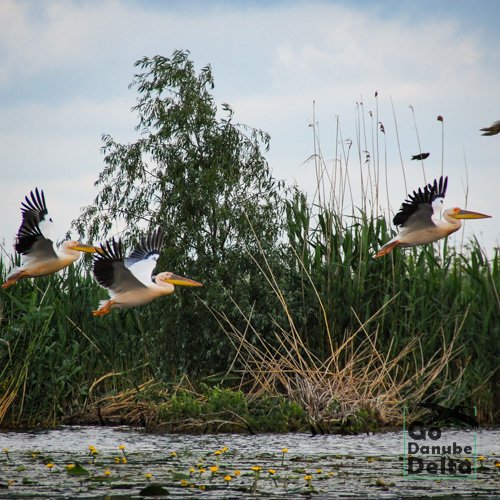
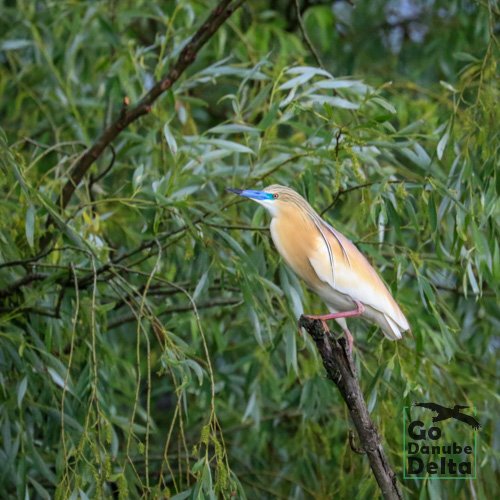
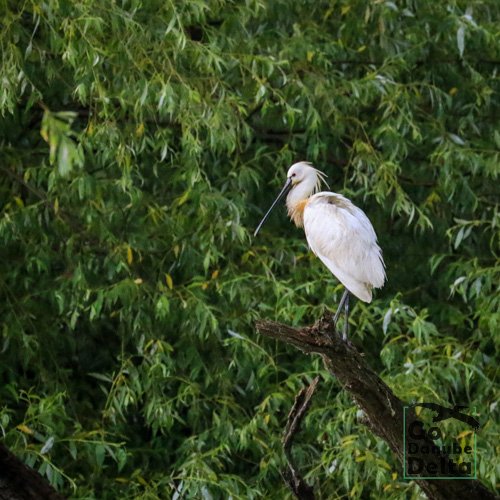
The program of the first day trip to the Danube Delta
Tulcea – Tulcea Branch – Channel 36 – Trofilca Channel – Potcoava Lake – Cu Cotețe Lake – Sireasa Channel – Periteasca Channel – Sontea Channel – Near Nebunu Lake (strictly protected area) – Radacinos Channel – Radacinos Lake – Fortuna Lake – Olguța Channel – Mila 23 Village – Stop for accommodation and lunch with locals.
Duration: Approximately 4 hours.
We depart from Tulcea, enthusiastically heading down the Tulcea Branch to Channel 36, then exploring the northern Sireasa canals and lakes, continuing on the Sireasa, Periteasca, and Sontea channels. The highlight is the spectacular entrance to Radacinos Channel and Lake, followed by the stunning Fortuna Lake, filled with white and yellow water lilies and a wide variety of bird species, reaching the fishermen's village Mila 23.
See the route of the day on the inactive map below
Usually, the first to greet us are the pelicans! Then, it's our hosts’ turn.
The locals are hard-working yet incredibly hospitable people, happy to welcome visitors after the long and lonely winter months. They are excellent cooks and have learned that not everyone eats fish, so they prepare vegetarian, vegan, and allergy-friendly options. However, we strongly recommend trying the fish dishes, as they are cooked "just like at home – from the heart of the Delta."
The tradition here is that the husband, a fisherman, provides the fresh catch while the wife showcases her culinary talent, watching for signs of guest satisfaction. Soon, you will feel like you've known your hosts forever.
After a well-deserved siesta, we prepare for the afternoon excursion!
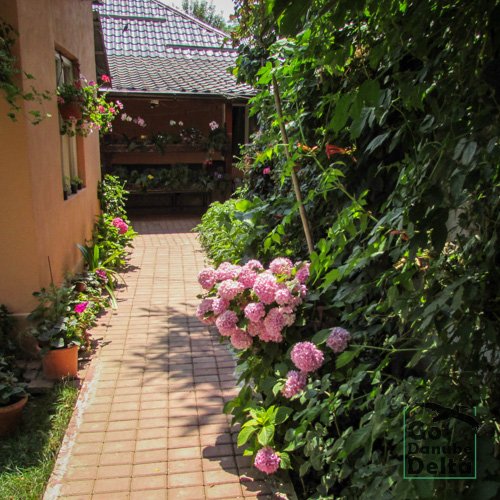
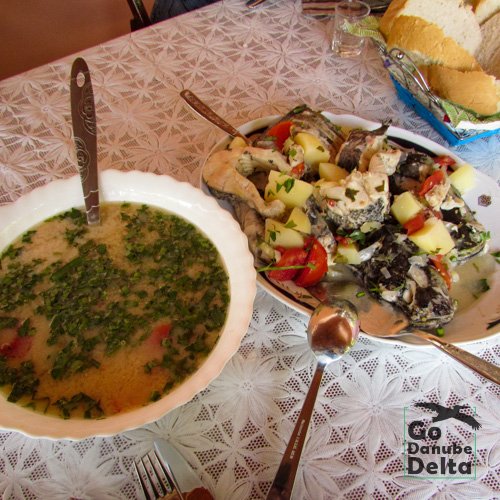
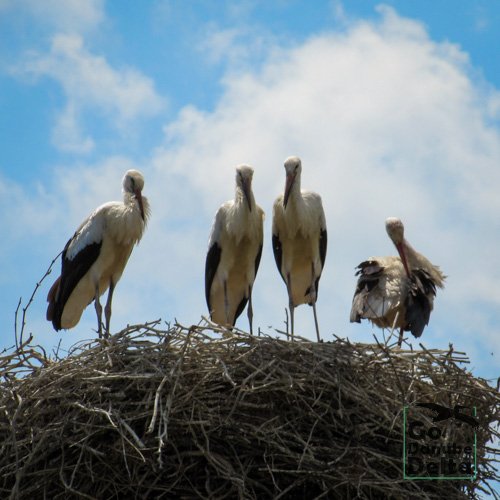
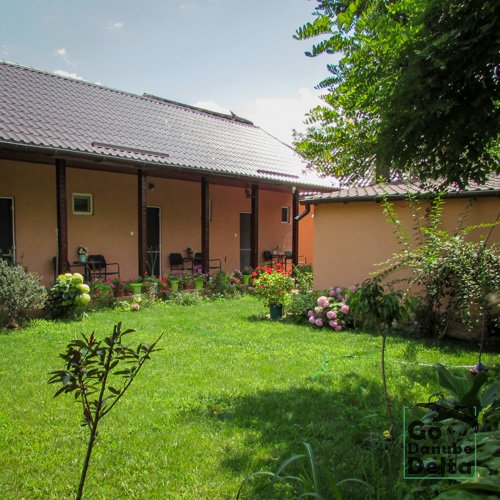
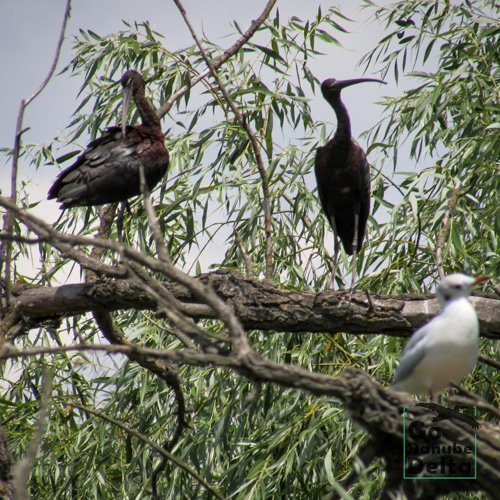
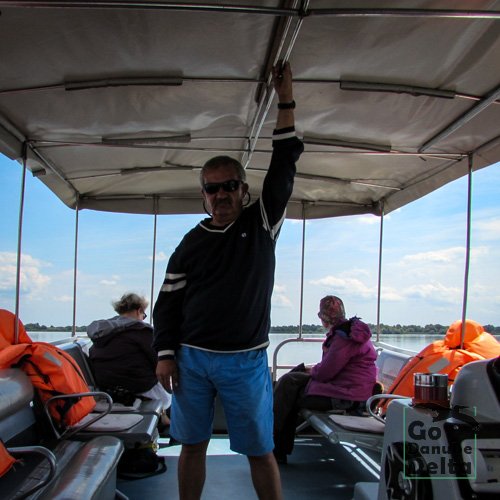
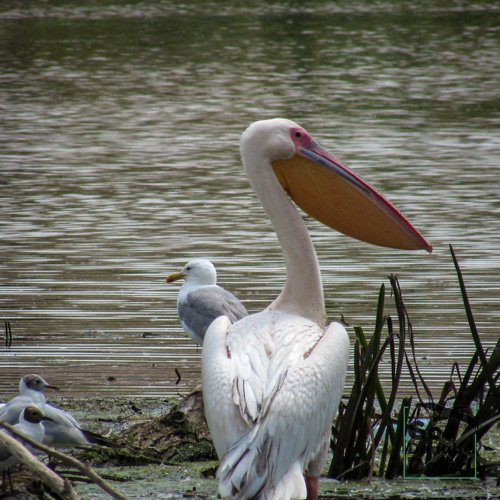
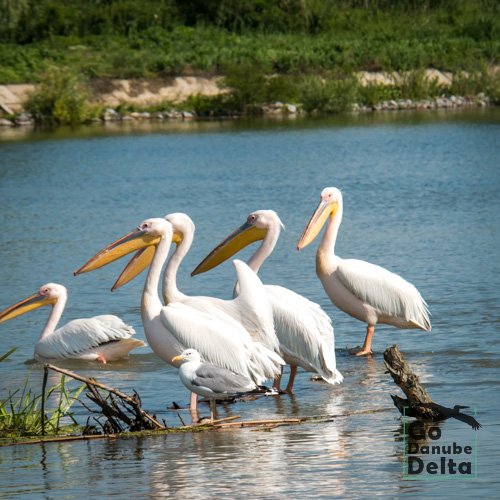
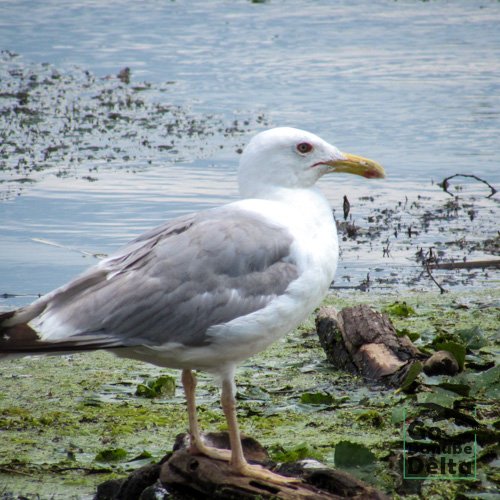
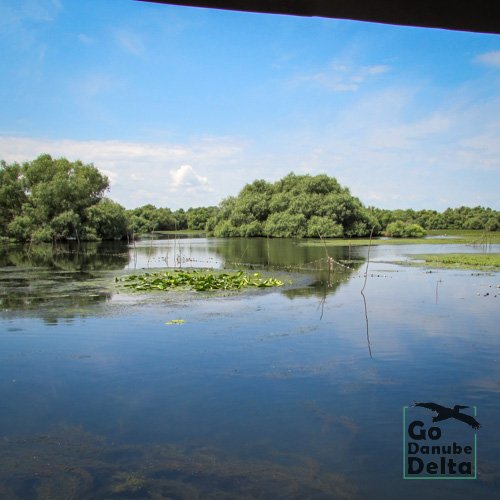
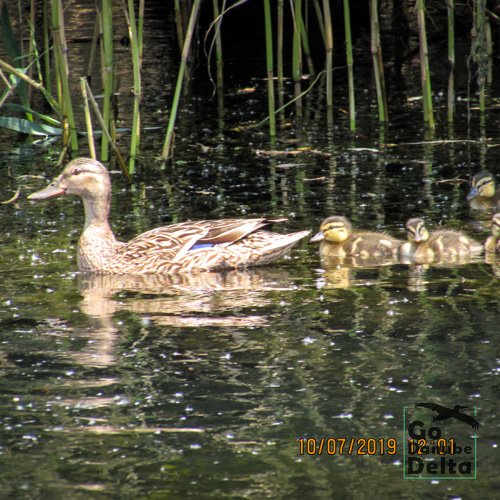
Optional: Before the evening excursion, we can visit the Ivan Patzaichin Museum in the village, which is open from Wednesday to Sunday between 12:30 PM and 7:00 PM.
For relaxation before dinner, we will take the following route: Mila 23 – Catavaia Channel – Ligheanca Lake – and return to Mila 23.
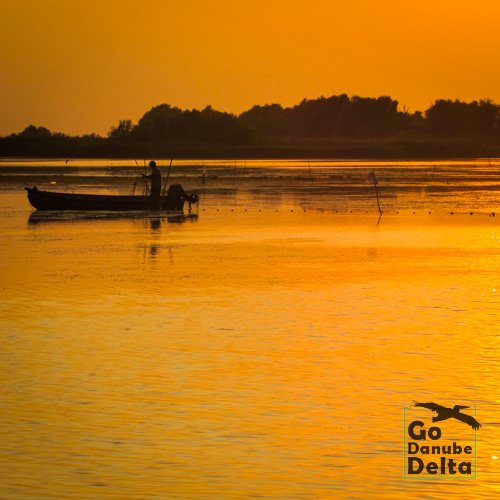
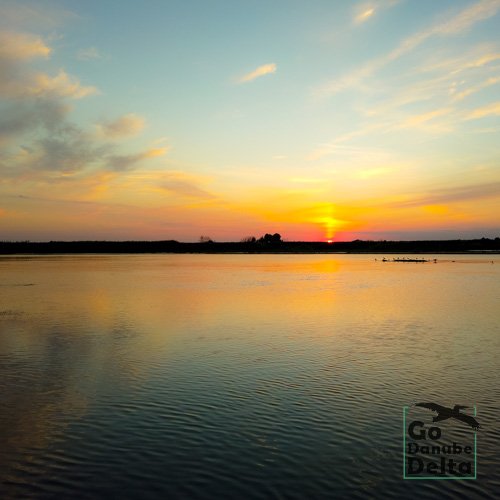
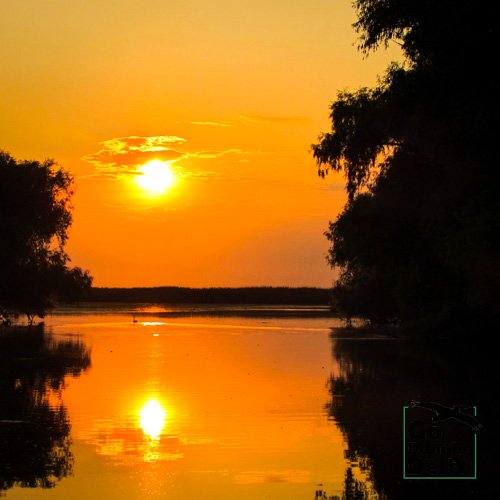
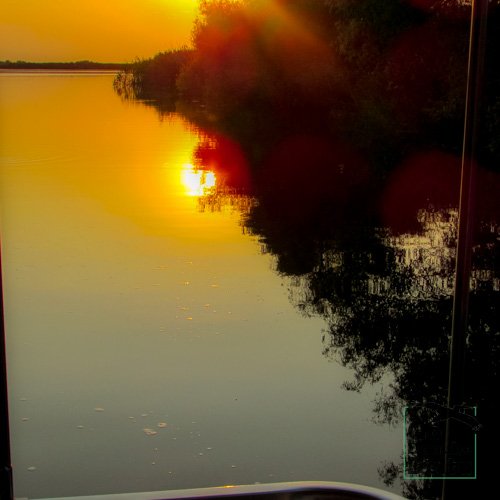
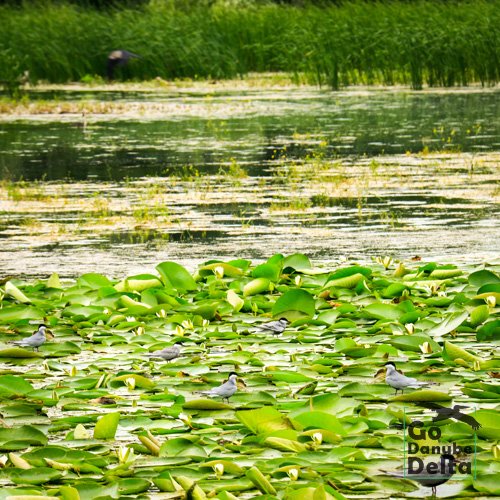
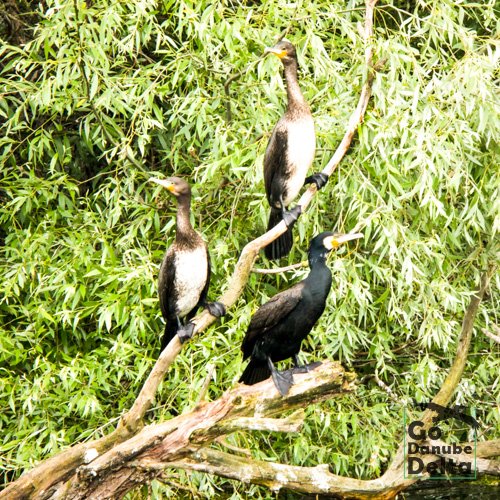
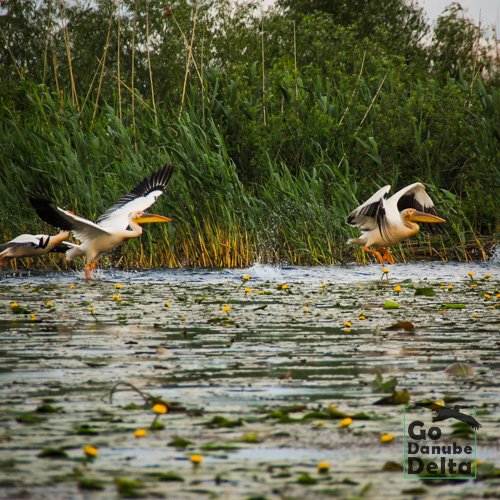
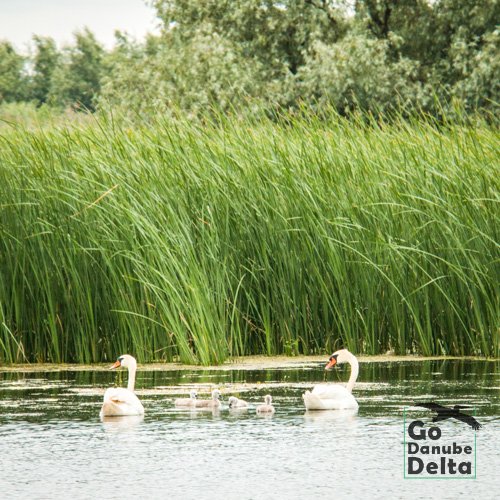
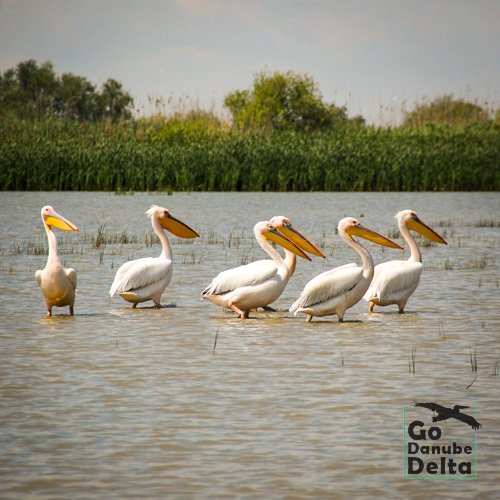
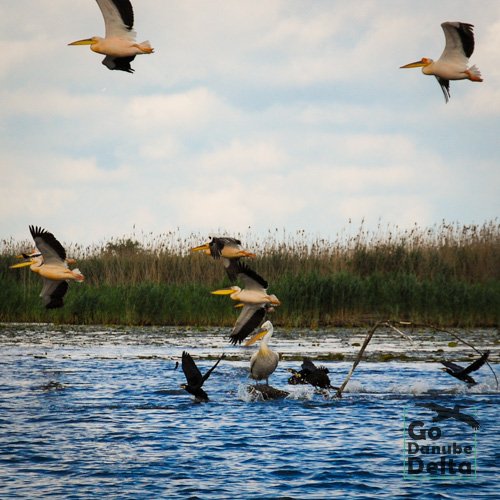
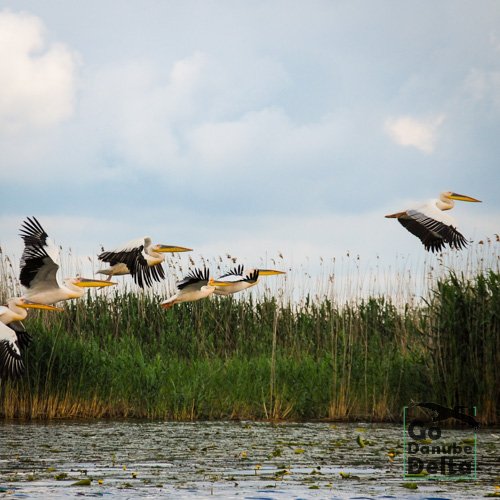
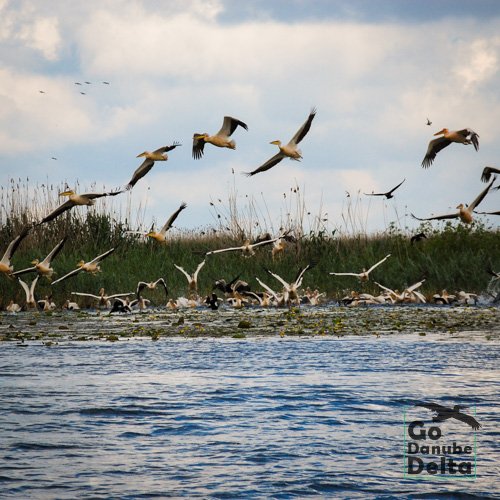
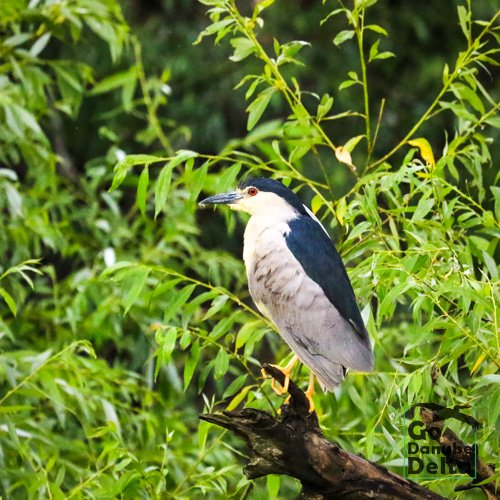
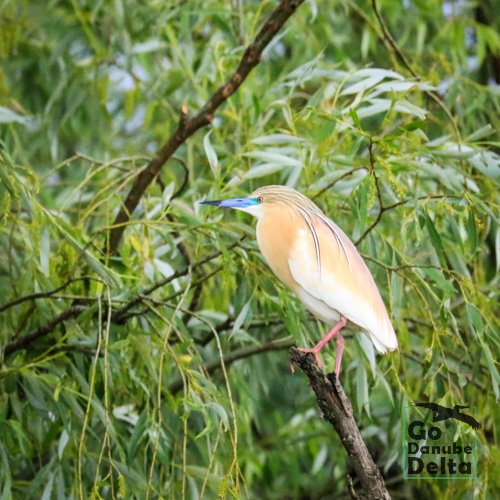
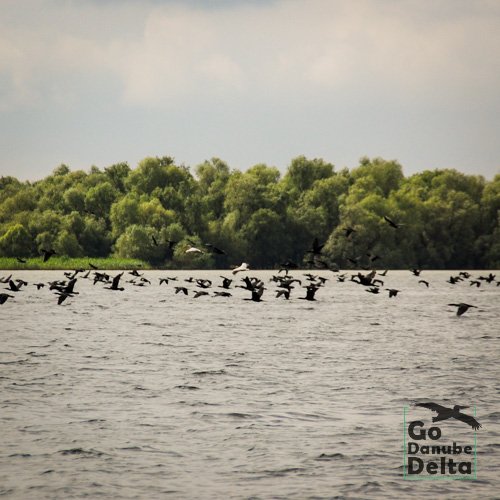
WHY TO CHOOSE THIS TOUR ?
A catamaran boat is the perfect way to discover this area with all its beauties. This boat can navigate the narrow channels without noise and we will be getting closer to birds or other animals. The beauty of the Delta consists in the labyrinth of small channels, islands, lakes, more quiet and less visited areas. It will be a real expedition in the Danube Delta, an experience and an unforgettable memory.
Day 2 Program – Danube Delta Excursion
Mile 23 - Eracle canal - Lopatna canal - near the Ciulini Lake - Miazazi canal - Miazazi Lake - Matita lake - Suez canal – Merhei lake - Sidor canal - Letea - Stop to visit the forest and packed lunch. Continuation of the trip: Letea - Madgearu canal - Dunărea Veche canal - Bogdaproste canal - Bogdaproste lake - 3 Iezere lake - Eracle canal - Mila 23.
A full day awaits us, having as main attraction the village and the Letea forest. After a spectacular route on canals and lakes, the Sidor canal, towards the end, shocks us with an impressive change of landscape! After a narrow canal, bordered by reeds and rushes, sand dunes appear unexpectedly and with.. little luck… wild horses!
See the route of the day on the inactive map below
Letea is a locality located in the northeast of Tulcea County, in the Danube Delta, on the Letea ridge, 102 km from Tulcea. It belongs to the CARosetti commune, which consists of 4 villages. Sfiștofca and Periprava, inhabited by Lipovan Russians, Cardon, a village where Ukrainians and Bulgarians live, and Letea, which is a village of Ukrainians. In the commune of CA Rosetti live many Moldovans who came in transhumance with sheep from Moldova and the Republic of Moldova.
Letea Forest was born about 6000 years ago, after the waters of the Black Sea receded. It is not an ordinary forest, because instead of earth, the plants grow on the seabed. The secular oaks from Letea Forest are another attraction for tourists. One of them is over 780 years old, others are 400-500 years old, but only two of these trees can be seen by visitors on tourist routes. It is interesting that the roots of the trees in Letea Forest are oriented to the side, they do not go down. In general, in the reserve are meadow trees, poplars, firs and oaks, which have adapted to the conditions offered in the forest with sandy soil and have a root surface, because the groundwater is very close to ground level. That is why they do not have much resistance to strong winds and weather, so many of them are broken and fallen.
Many tourists who arrive in Letea Forest want to see, in addition to the sand dunes and secular oaks, the famous wild horses. They can't always be noticed, because they don't care what the visitors want and they walk on the 6000 hectares of the reservation. Specialists estimate that there are about 2,000 wild horses in the Letea area. They were abandoned by the locals during the communist period, either because they had nothing to feed them, or after it was declared "infectious anemia", a disease that led many horse owners to abandon their animals. Horses have multiplied over the years, and it is now estimated that there are between 3,000 and 5,000 horses in the entire reserve and almost 2,000 in the Letea area.
The most requested by tourists is the carriage ride, because the road passes through the forest and the landscape is much more picturesque. In addition, the route by cart is shorter and takes about an hour and a half. At one point, tourists get out of the cart and walk through the beautiful forest to the sand dunes, where they can see many species of plants and birds. In any season you choose to visit Letea Forest, the spectacle offered by nature is extraordinary. It is important to protect it, so that this wonder of nature can be visited by our children or grandchildren, with the same joy that the reservation provides us.
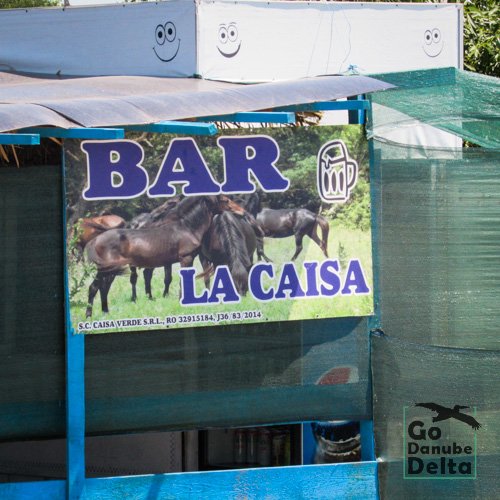
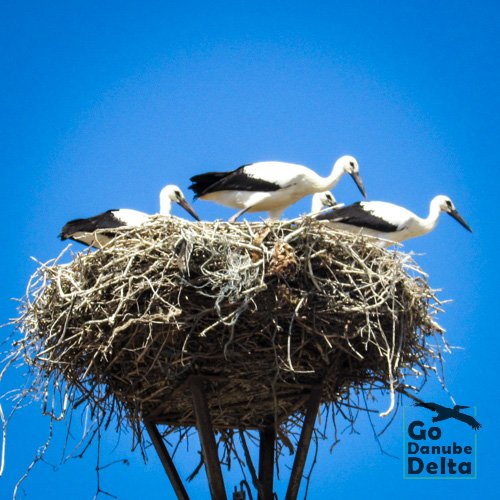
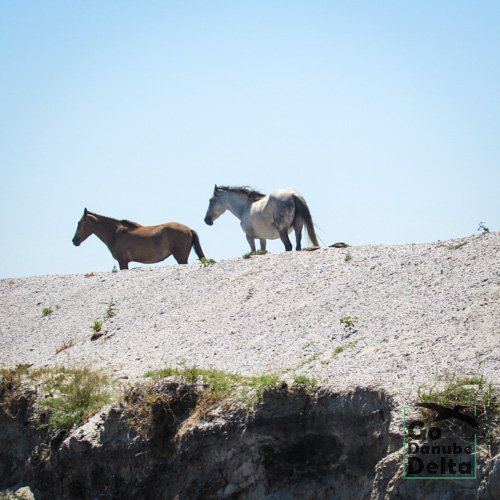
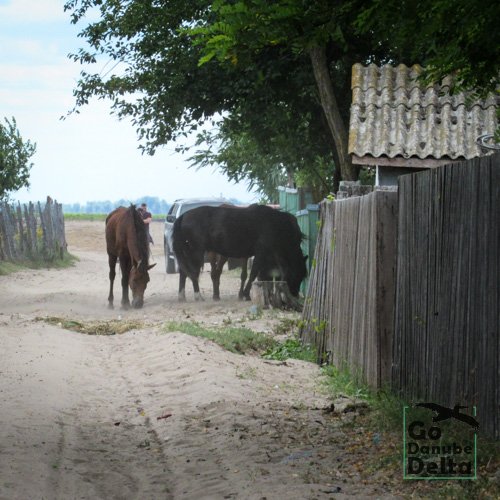
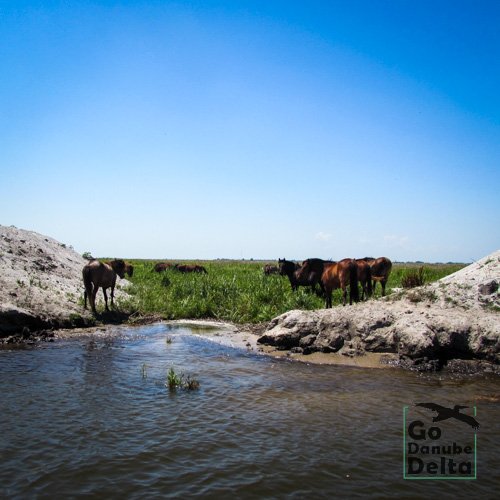
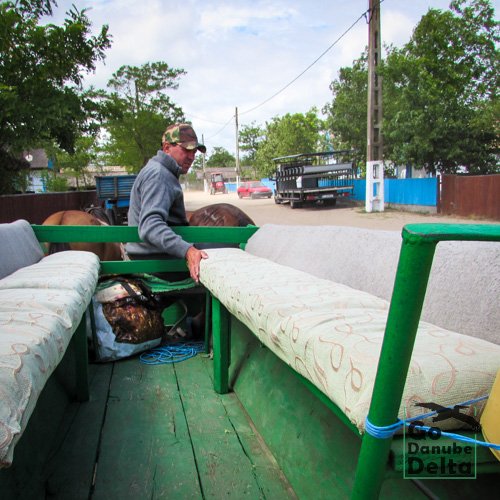
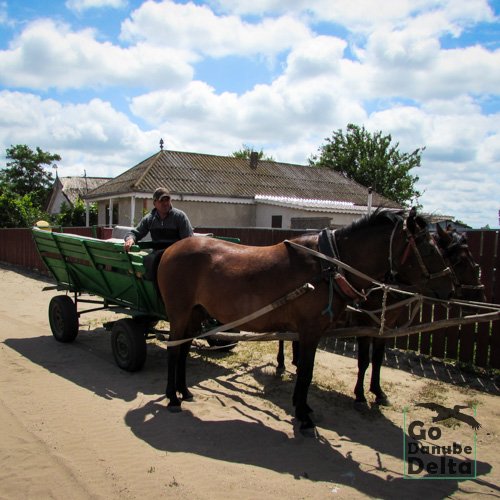
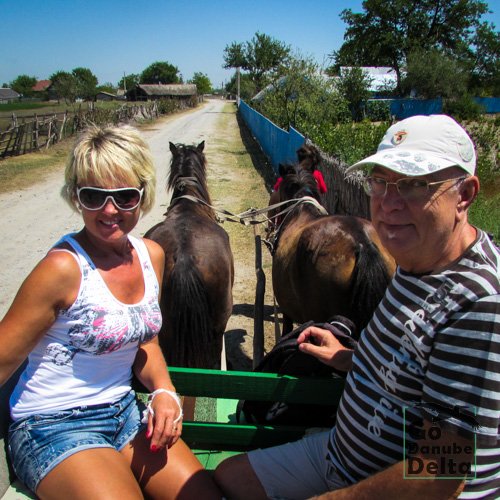
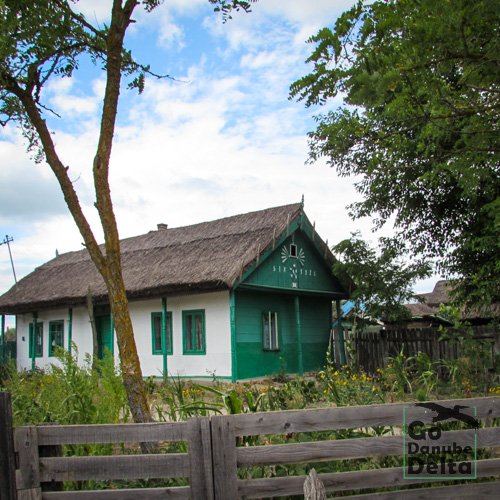
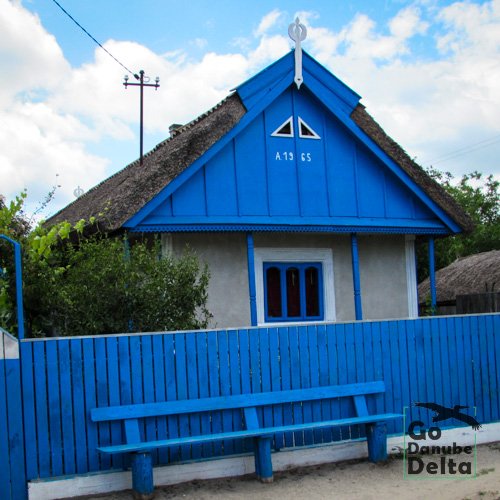
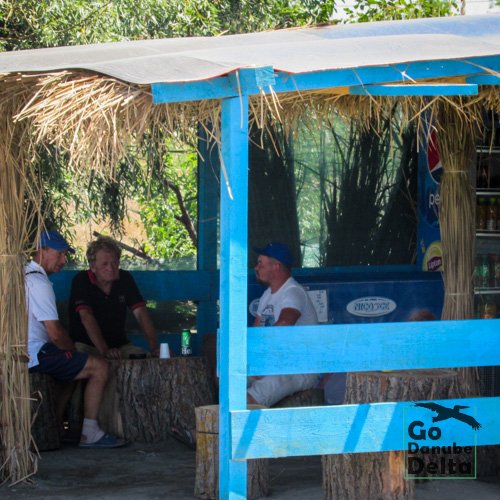
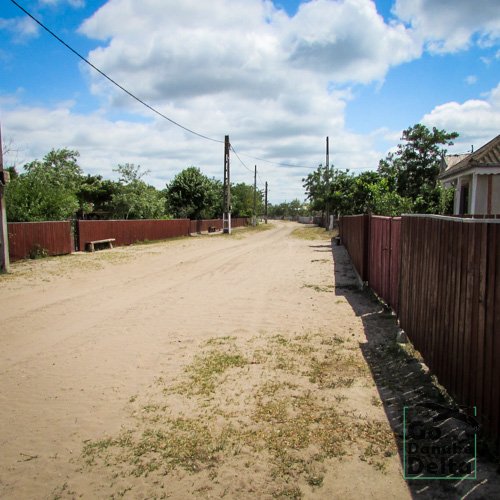
Lunch that has been provided "bundled" by our host can be served either in the woods or on board the ship.
The return to Mile 23 is made on a different route than the one we came on! We leave Letea on the Madgearu canal after which we enter the “Great M” line - the ancient natural route of the Danube before the Sulina arm is dug and continue towards Mila 23 through the chain of lakes - Bogdaproste - 3 Iezere and the Eracles canal that leads us to Mila 23 waiting for us with ...
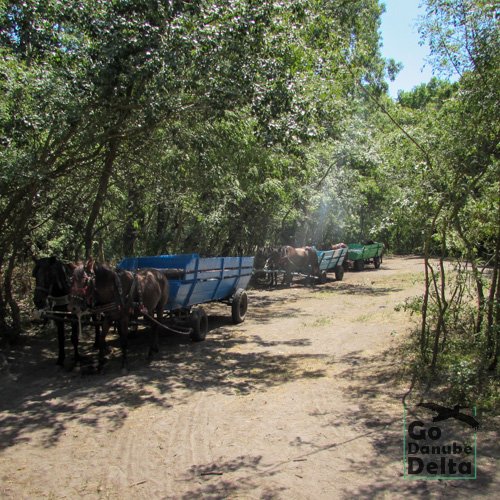
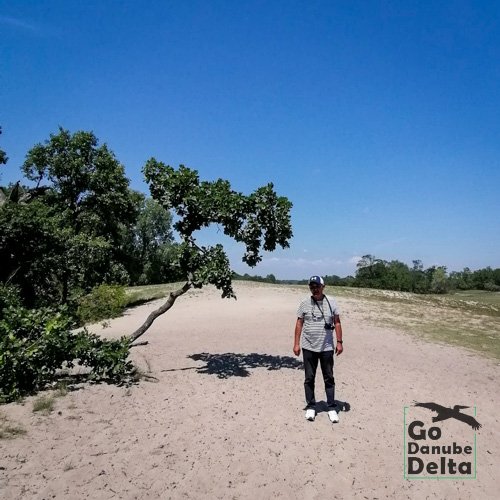
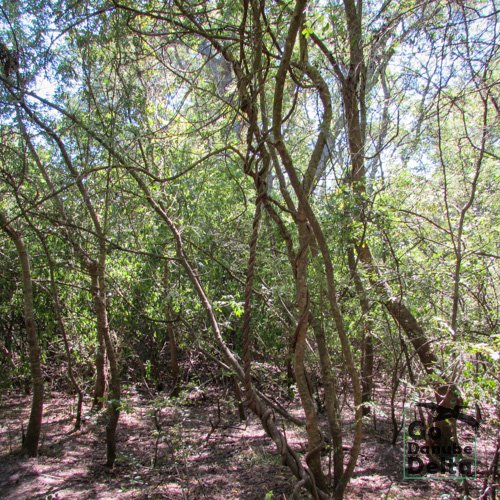

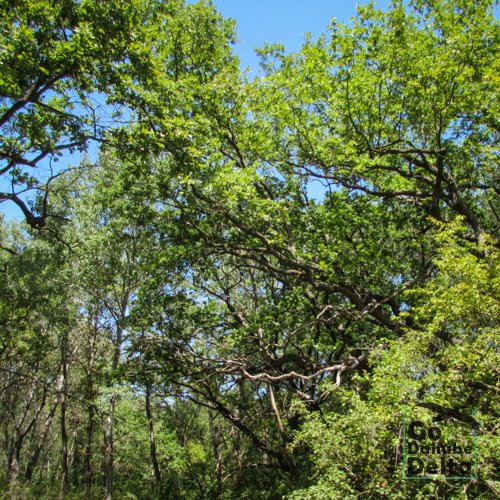
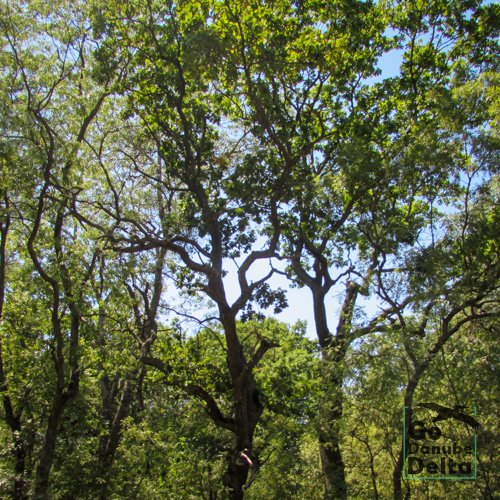
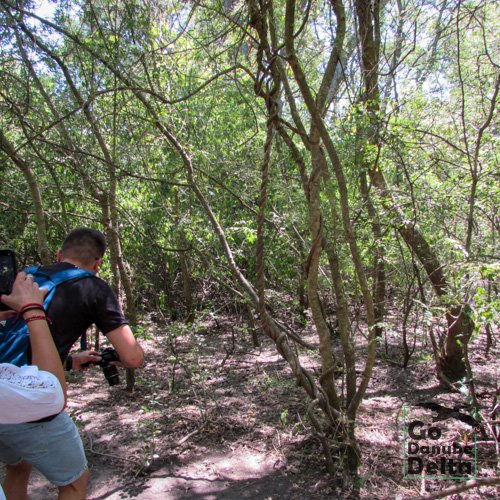
Day 3 Program – Danube Delta Excursion
Option 1 – Visit the town of Sulina
Itinerary: Mila 23 – Old Danube Channel – Crisan Village – Sulina Channel – Sulina Town and return to Mila 23.
See the route of the day on the inactive map below
Sulina is an old settlement, believed to date back to the 6th-8th century BC, during the establishment of the first colonies on the shores of the Black Sea. Sulina became a town in the 19th century, in 1856, when the European Commission of the Danube was established there. At that time, Sulina had about 1,000 inhabitants.
This transformation elevated the settlement from a small fishing village into a significant European port. By 1903, the town had gas lighting, electricity in 1,200 homes, and 70 companies related to navigation and ship repairs.
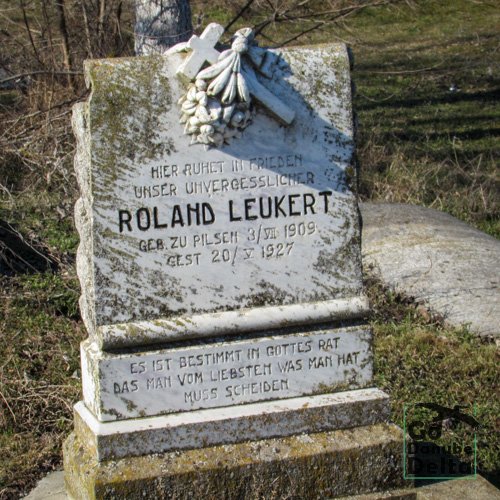
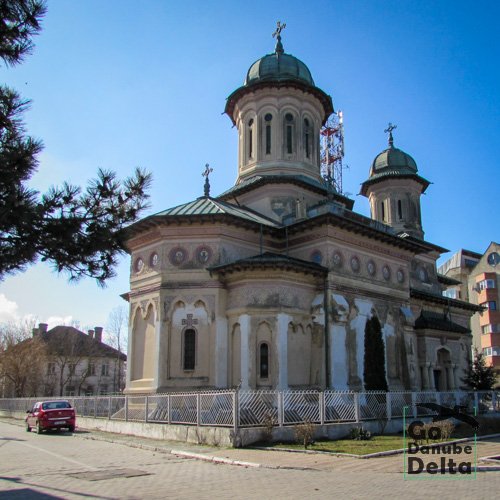
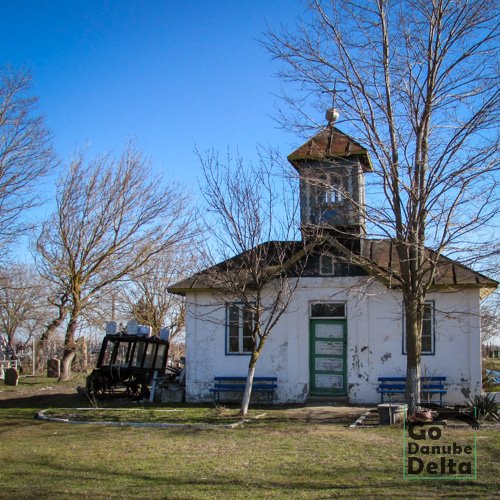
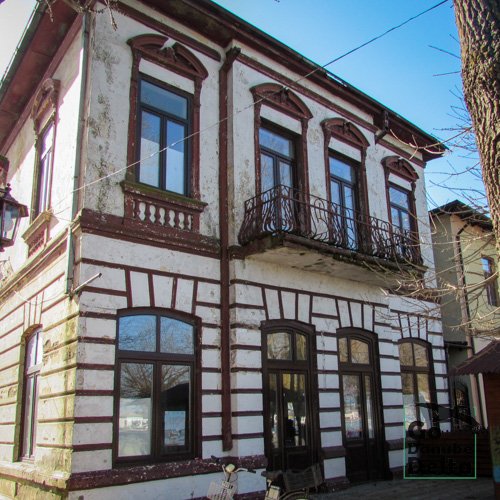
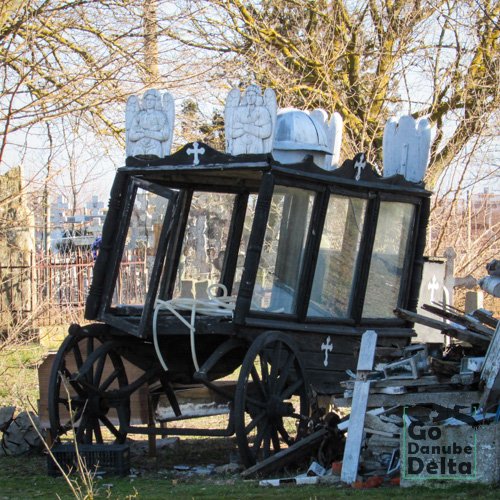
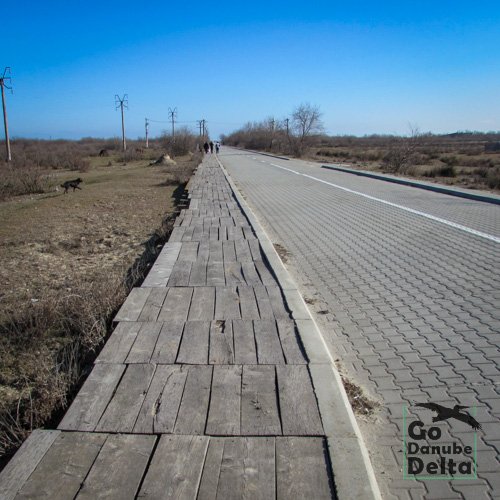
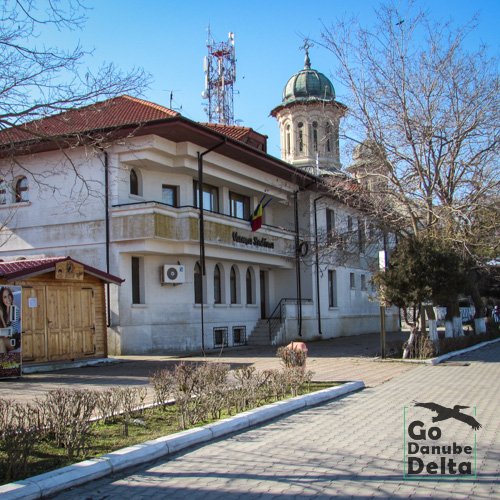
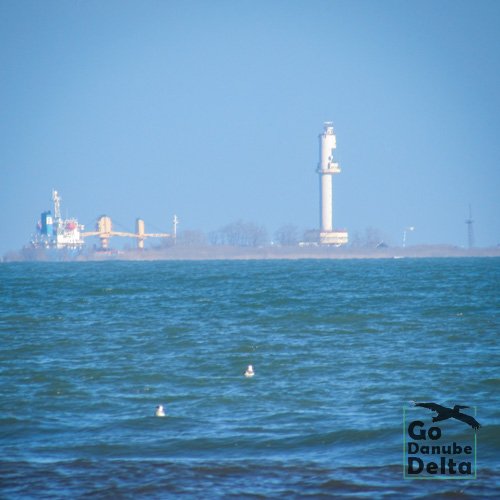
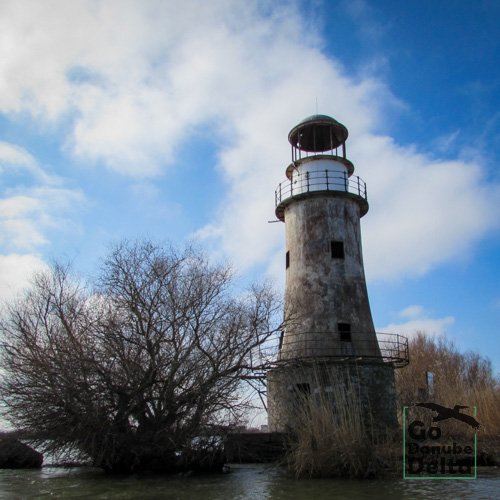
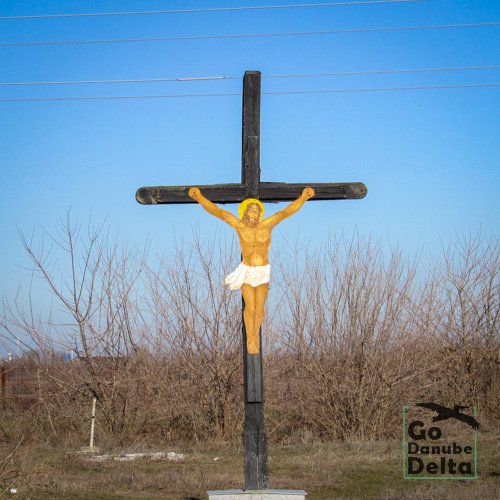
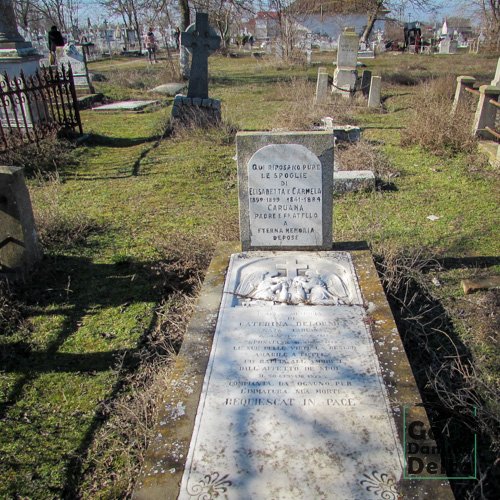
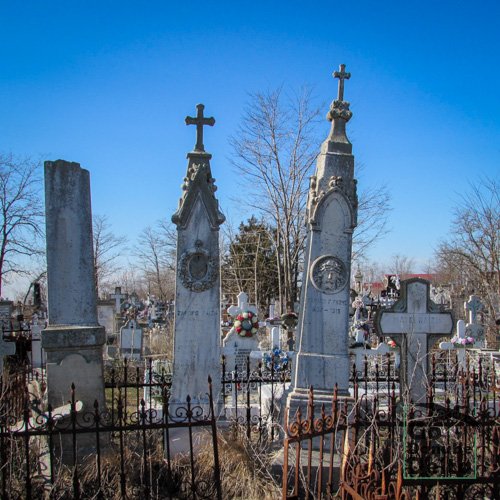
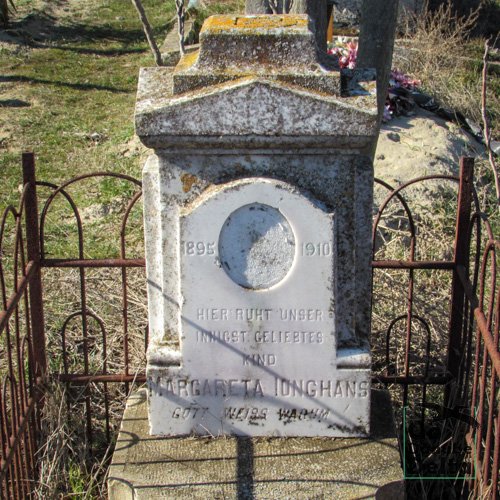
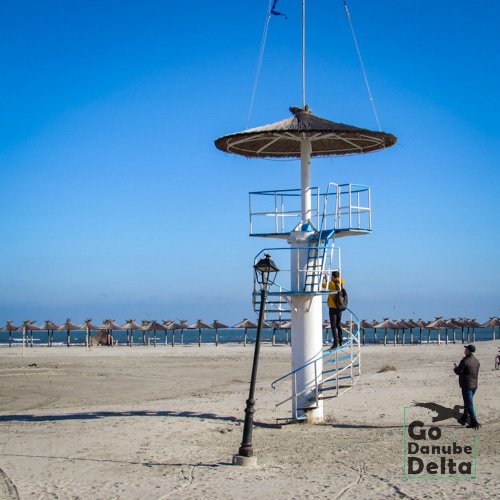
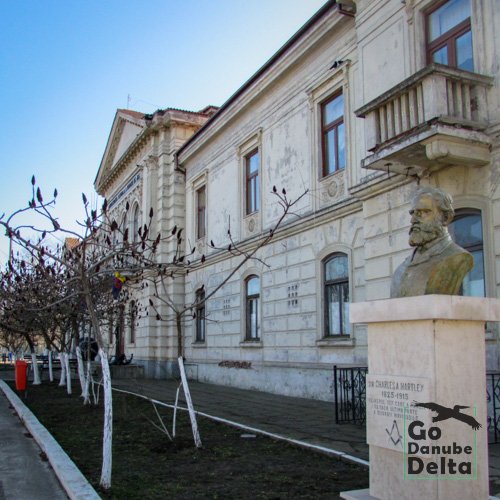
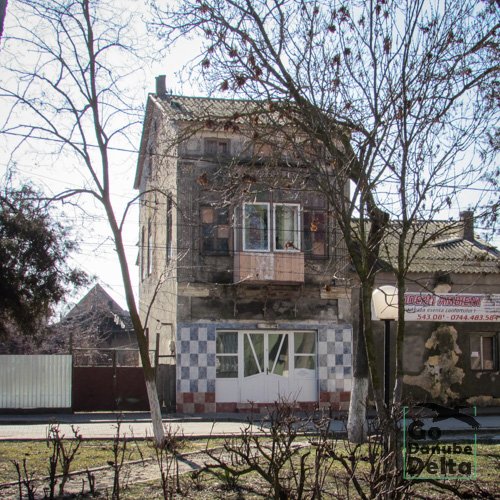
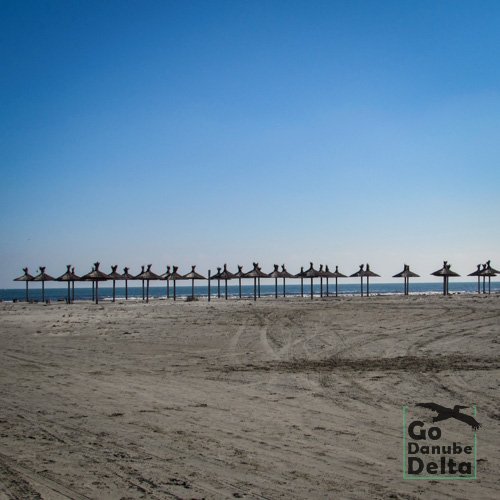
Key Attractions in Sulina:
The Old Lighthouse Built in 1869, it stands 17 meters tall and now serves as a museum. Entry costs 5 RON, and visits are guided by a knowledgeable local. The permanent exhibition highlights key moments in Sulina’s history and the lives of two famous personalities: writer Jean Bart and conductor George Georgescu.
The European Commission Palace: Built between 1856 and 1858, this is one of the most impressive buildings in Sulina, symbolizing the town's economic and social growth.
The Seaside Cemetery: The only marine cemetery in Eastern Europe, where tombs of pirates, princesses, Muslims, Jews, Catholics, Protestants, and Orthodox Christians lie together in eternal rest.
Sulina Beach Located 2 km from the town, accessible by walking, cycling, or local taxis. The beach offers a wild, natural experience perfect for a refreshing swim in the Black Sea.
Lunch: Picnic lunch provided or free time to enjoy local terraces.Option 2 – Excursion on Channels and Lakes Between the Sulina and Sfantu Gheorghe Branches
Itinerary: Mila 23 – Old Danube Channel – Sulina Branch – Crisan Village – Ciamurlia Channel – Cuibul cu Lebede Lake – Litcov Channel – Isac Channel – Isac Lake – Perivolovca Channel – Litcov Channel – Caraorman Channel – Crisan Village – Mila 23.
Duration: 6-7 hours
Lunch: Packed lunch provided
After exploring the area between the Sulina and Chilia branches on Day 2, why not explore this section of the Delta to gain a clearer picture of its beauty and diversity.

















The fourth day program of the trip to the Danube Delta
Mila 23 – Catavaia Channel – Ligheanca Lake - Vacaru Channel – Vacaru Lake – Sontea Channel – Baclanesti Lake – Candura Bend – New Sontea Channel – Sireasa Channel – Channel 36 – Tulcea Branch – Tulcea
We bid farewell to our hosts and head back to Tulcea through the Catavaia Channel and Ligheanca Lake, continuing to Vacaru Channel and Lake, where pelicans and cormorants often work together to empty the lake of fish but still allow us to admire them from a respectful distance without disturbing their feast.
See the route of the day on the inactive map below
Passing Baclanesti Lake, we enter the Șontea Channel, rich in bird diversity. The trip continues along the peaceful New Șontea Channel, where only local fishing boats can be seen. Swans, great and little egrets, coots, moorhens, various heron species, ibises, rollers, and bee-eaters can be spotted, all watched over by the majestic white-tailed eagle circling high above.
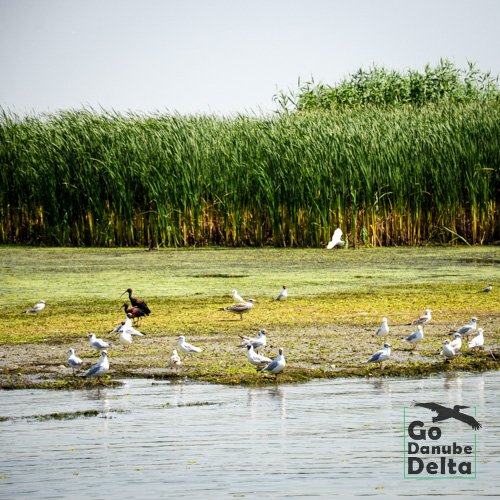
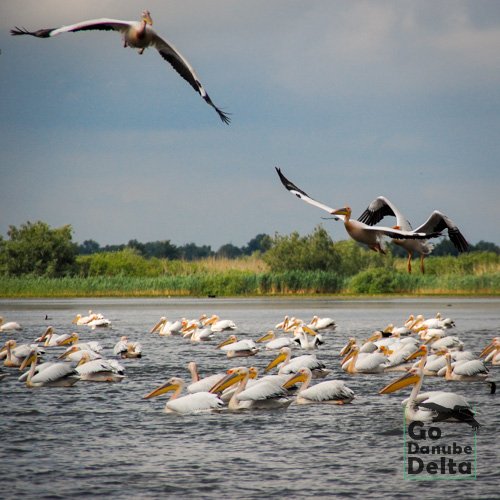
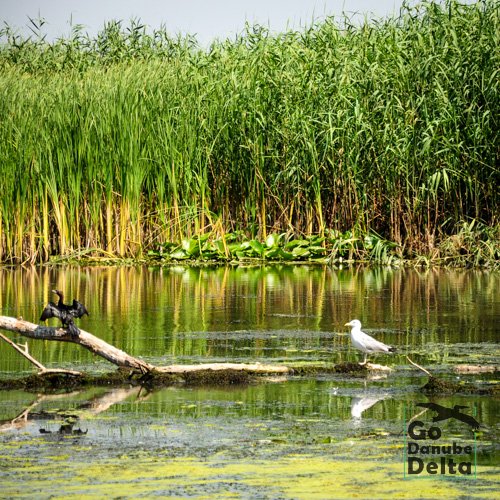
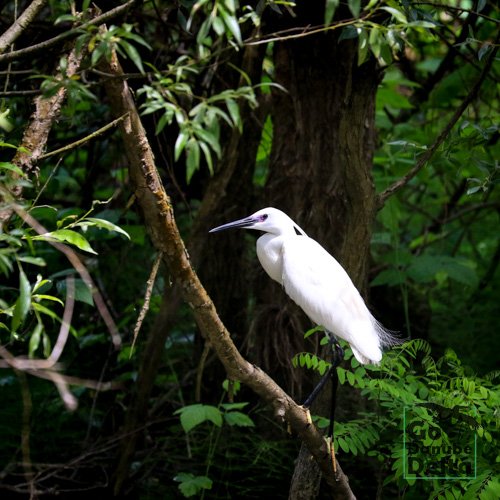
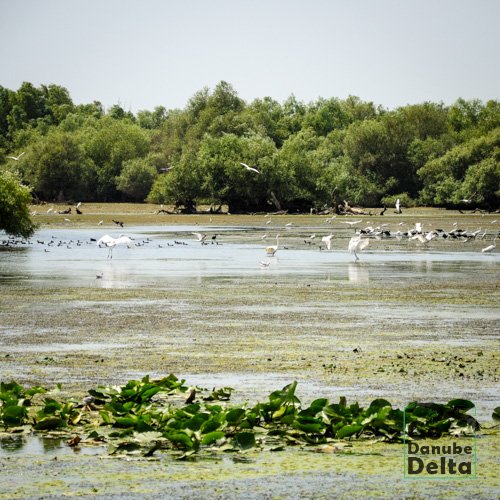

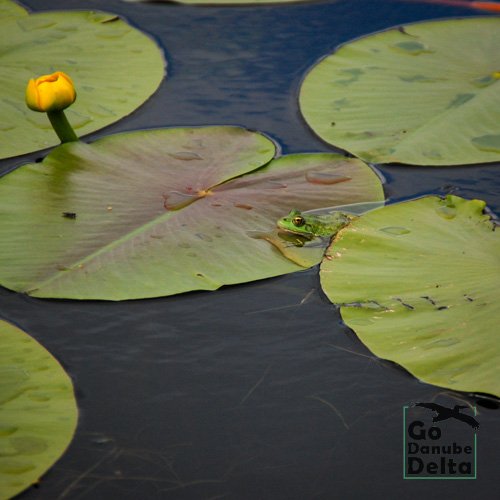
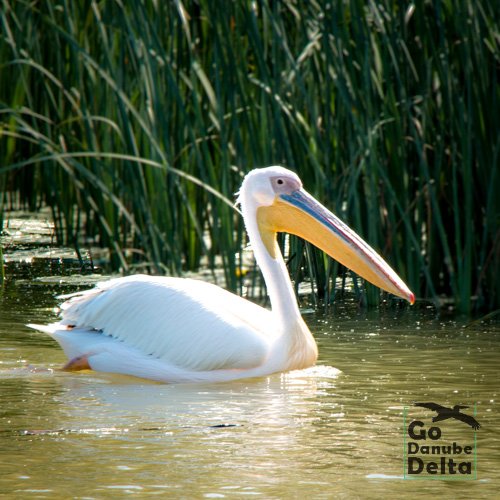
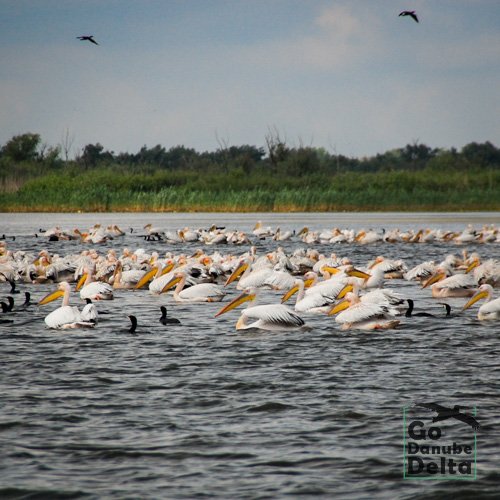
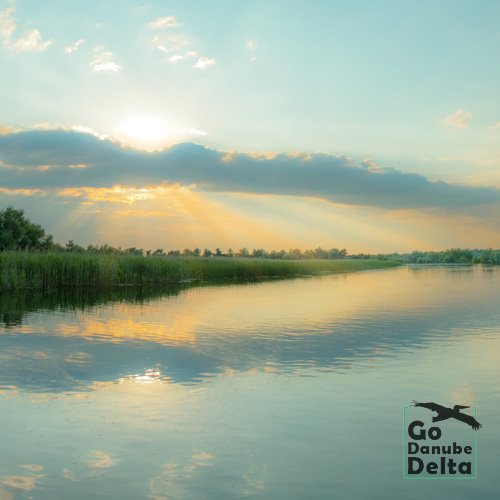
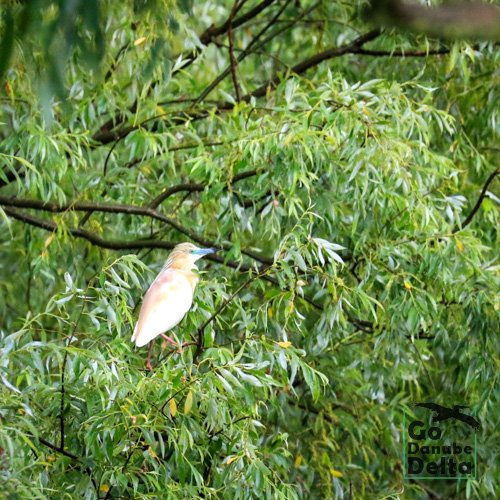
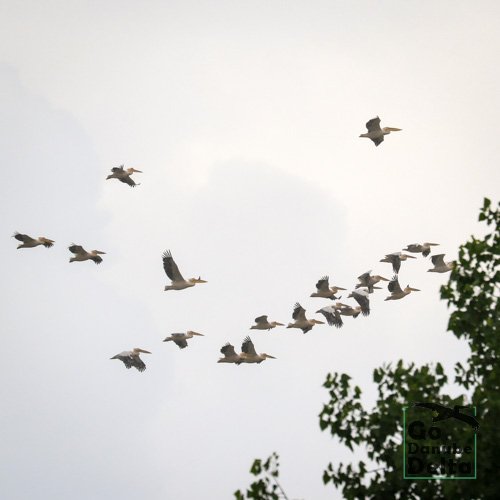
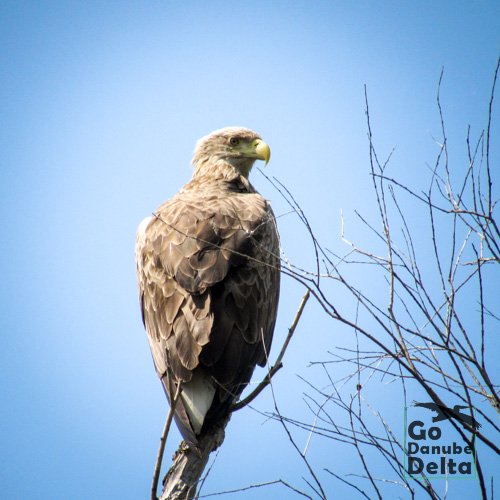
Optional: We can stop for a traditional fisherman's lunch on the Șontea Channel bank.
The final part of the journey leads through the lush Periteasca and Sireasa Channels, offering a relaxing and scenic finish on Channel 36 back to Tulcea.
Customize your Danube Delta Cruise
If you want a private tour just for you and your friends or family, held another period than the standard, or if you want to change the type of accommodation, services included, etc., please send your request in the reservation form of or by email. We will make immediately an customized offer so you may enjoy a holiday in the Delta Danube the way you wish.
What is included:
4-days boat rental (fuel and captain included!)
Full board accommodation with locals in Mila 23 – 3 nights
Visit of Letea forest
Danube Delta Access Permit – 4 days
Price: calculated according to the number of participants
8 pers. – 330 EURO / pers. / tour
7 pers. – 345 EURO / pers. / tour
6 pers. – 370 EURO / pers. / tour
5 pers. – 405 EURO / pers. / tour
4 pers. – 460 EURO / pers. / tour
3 pers. – 545 EURO / pers. / tour
2 pers. – 715 EURO / pers. / tour
Children policy
Free for children under 5 years
Children between 5-12 years, pay 50% of the rate
Children over 12 years are considered adults and pay the full price
Optionals:
Traditional fisherman's lunch on the Șontea Channel: 80 RON/person
Danube Delta Guide: 320 EUR/group/4 days
General conditions:
Routes may be adjusted depending on water levels, floating islands, fallen trees, or other unpredictable natural conditions.
Tours in the Danube Delta - 2026
-
6-7 hours
-
40 EURO / pers.
Traditional fish lunch included details -
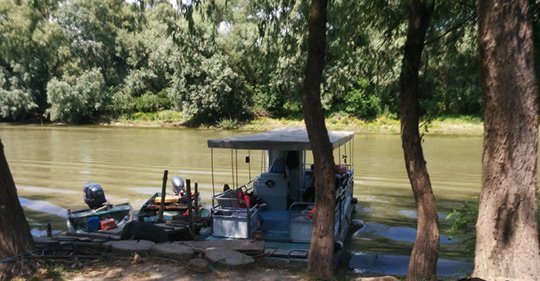
- Points of interest:
- Sireasa canal - Sontea Noua canal – lunch at the fishermen’s hut - “Roookeries” lake
-
8-9 hours
-
44 EURO / pers.
Traditional fish lunch included details -
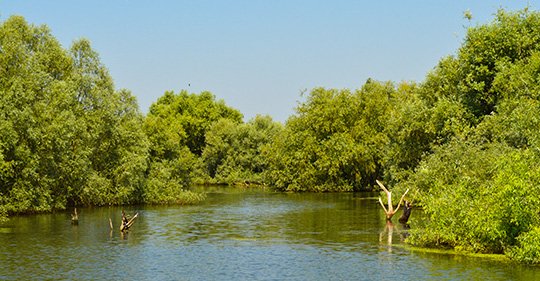
- Points of interest:
- Fortuna Lake - Mila 23 village - lunch with the locals - Sontea Noua canal - “Rookeries” lake
-
2 days
-
140 EURO / pers.
Accommodation on full board basis details -
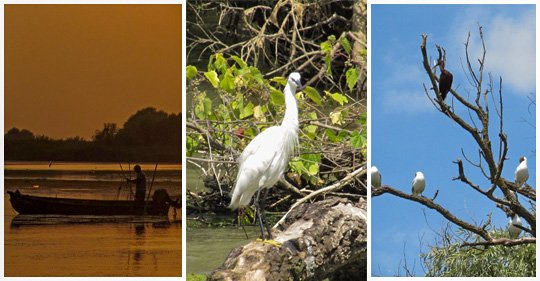
- Points of interest:
- Fortuna lake - Mila 23 village - Bogdaproste and 3 Iezere lakes
-
3 days
-
240 EURO / pers.
Accommodation on full board basis details -
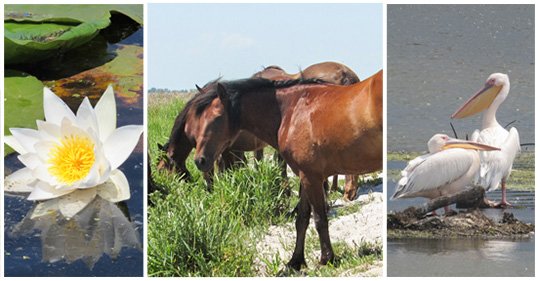
- Points of interest:
- Fortuna lake - Mila 23 village - Letea village and forest
